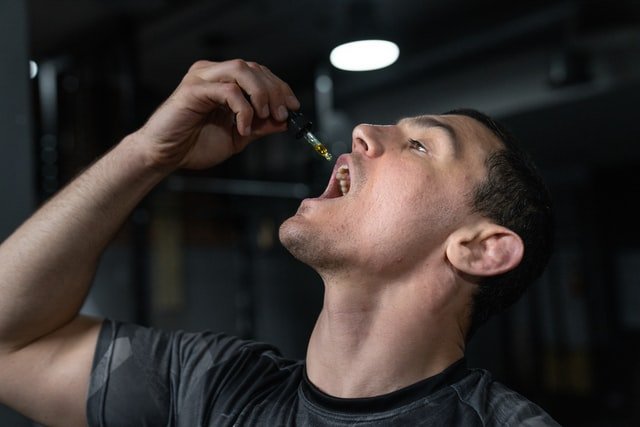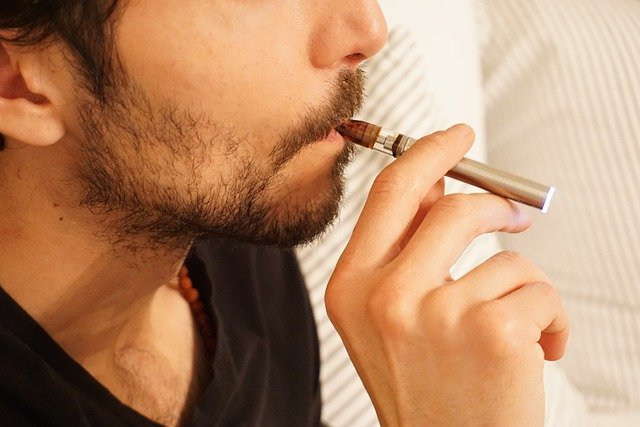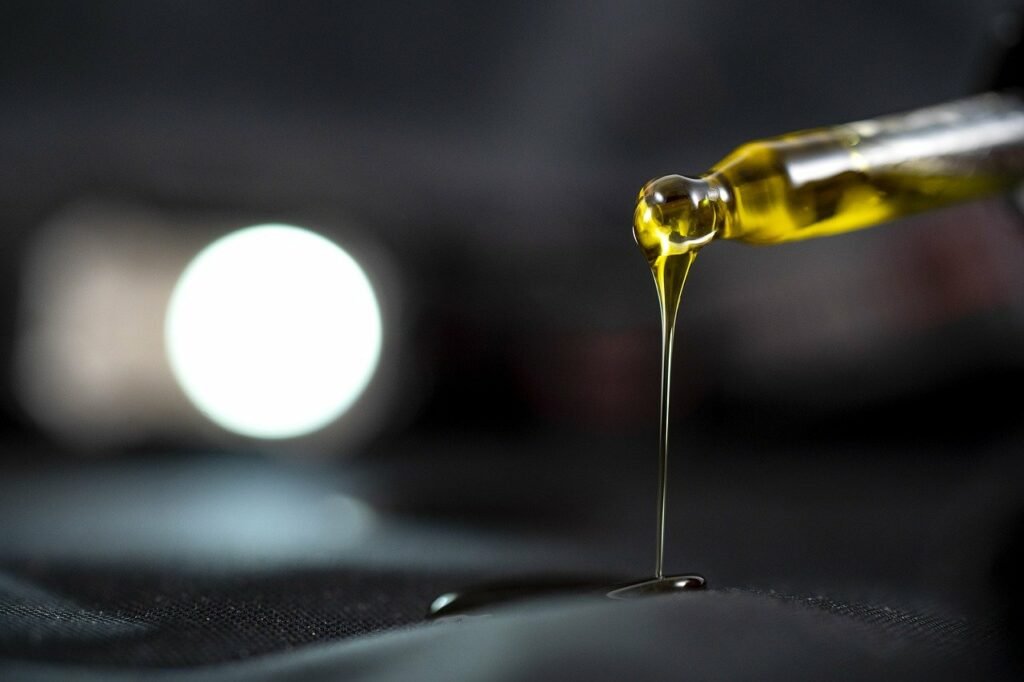Why Does CBD Oil Make Me Cough? (Here’s Reasons why)
If you have been taking CBD and realised it has started to make you cough, there could be numerous reasons for this?
With CBD being unregulated, it can be difficult to find a product that suits you and your individual needs.
As companies can pretty much add what they like, meaning that you may be allergic or react negatively to the CBD you are using.
Why Does CBD Oil Make Me Cough?
CBD oil can make you cough for a few reasons, one of them being the additives in the product itself. Manufacturers are able to add what they like for flavouring or anything which will make the product cheaper to manufacturer. Always do some research before you invest in CBD, as it can be expensive and not necessarily a better product. Check to see if the product is either full spectrum or broad spectrum. Full spectrum products contain multiple cannabis plant extracts, including essential oils, terpenes, and other cannabinoids. Where as CBD isolate is a pure form of CBD. It contains no other cannabis plant compounds. It usually comes from hemp plants, which typically contain very low amounts of THC. You may have allergies from some of the additives or maybe from the carrier oil of the product. The same applies if you are vaping CBD, as people have reported coughing when vaping, more than taking orally (for obvious reasons).
Your throat and lungs are lined with sensory nerves. They work to detect irritating substances, like smoke, in your airways.
If you inhale an irritant, the nerves send signals throughout your respiratory tract.
This produces a cough reflex, which helps you get rid of the irritating substance. The goal is to protect your respiratory tract, and ultimately, your lungs.
This is what happens when you smoke cannabis.
The smoke irritates your airways, causing your nerves to trigger a cough reflex. It’s a normal reaction to inhaling any kind of smoke.
Terpene Terror?
CBD, as you perhaps already know, affects everyone differently in many different ways. There is a lot of people who are allergic to it, or your body might not be a fan of some other ingredient in the product.
Terpenes can cause this also – These are the natural compounds in the flower or bud of the cannabis plant. Terpenoids, meanwhile, are terpenes that have been chemically altered.
The process of drying and curing a cannabis flower leads to the formation of terpenes in the CBD.
Not all blends include terpenes though. Terpenes can give you a dry mouth. They are volatile aromatics that are beneficial to the body.
One method is to do the following:
Once you’ve allowed the oil to sit under the tongue between 30 seconds to 1 minute… Immediately take a sip of water and swish around mouth, allow the oil to dilute, then swallow. Follow with a bit more water and it should help.

A common terpene is called Caryophyllene, which is abundant in black pepper.
It is also a sesquiterpene, meaning it will still be around after de-carbing. So, If your oil tastes peppery/spicy, it’s more than likely going to be caryophyllene.
Numerous reasons play roles if you cough during CBD vaping. One major reason for making you cough could be the presence of terpenes in it or even certain types of vape juice.
Terpenes are usually present in both full-spectrum and broad-spectrum CBD vaping liquids.
Terpenes cause itching in the throat, resulting in cough. If you are aren’t used to vaping, then coughing could happen until you get used to it.
Terpenes have been reported to irritate the throat, causing coughing.
Other components, such as Propylene Glycol (PG) and Vegetable Glycerine (VG), might exacerbate the airways and produce allergic reactions in certain people.
Dehydration
Even though vaping involves inhaling vapour made up of water molecules hanging in the air, it might dry out your throat and induce coughing. When vaping CBD, the PG component in your juice may pull out most of the moisture, resulting in a dry throat.
Underlying Health Issues
Coughing during vaping can also be caused by underlying health conditions (both cardiovascular and pulmonary in nature).
If this is the cause of your coughing, you should immediately cease vaping.
Smoking CBD Oil Can Cause Sore Throat
Smoking or vaping CBD oil can result in a sore throat and raspy voice.
Smoking blunts or CBD pre-rolls can make your mouth and throat dry because you have inhaled toxic chemicals together with the tar from the hot and dry air.
The severity of the throat irritation will depend on the type of cannabis you vaped or smoked and your tolerance to smoke.
On top of that, smoking CBD oil burns your throat, so if you want to avoid these problematic side effects, you should:
- Stay hydrated
- Avoid spicy foods
- Gargle with warm salty water
- Reduce the frequency of smoking/vaping
Other alternative methods that can help you with a sore throat include:
- Avoiding energy drinks and caffeine
- Licking lemon or honey
- Drinking herb tea with fruits
- Buying a vaporizer that will get rid of the stale, dry air in your home
- Smoking outside of your home
CBD Vape Oil Side Effects
Vaping CBD oil can cause the following side effects:
- Feeling drowsy
- Decreased appetite
- Diarrhea
- Rash
- Fatigue, discomfort, lack of energy
- Insomnia
To avoid these side effects, make sure you’re vaping CBD correctly and avoid additives like diacetyl and vitamin E acetate.

What type of CBD do you have?
CBD is a chemical compound found in the marijuana plant. Unlike Delta-9-tetrahydrocannabinol (THC), CBD does not produce that high feeling after use.
Companies that manufacture CBD products use different methods to extract the compound from the plant. The varying diffusions result in a range of CBD types (more on this later).
There are three types of CBD, that contain different concentrations and compounds:
- Full-spectrum: Includes all parts of the cannabis plant. Full-spectrum products contain less than 0.3% THC.
- Broad-spectrum: This contains most of the cannabis plant compounds. Unlike full-spectrum, broad-spectrum products contain trace amounts of THC.
- Isolates: Only contain CBD, with no other cannabinoids or THC. Products that contain isolate CBD may not produce any notable effects.
It has been widely reported that several CBD products make misleading claims about the use of their products. People should use caution before ordering any type of CBD.
A person should look for independently tested products. Some companies provide a Certificate of Analysis (COA), which shows what is in the supplements.
Some safety elements a lab can test for and report on a COA include:
- Exactly amount of each cannabinoid (The majority of labs only test for up to 11 of the 113 known cannabinoids).
- Terpene and flavonoid profile.
- Pesticides.
- Herbicides.
- Heavy metals.
Certain particular attributes of the CBD formula that you ingest, including: additives, brand, contaminants, potency, purity, sourcing, etc – may determine whether you experience side effects.
Administering a CBD formula containing additives (THC) or contaminants (pesticides) may increase risk of severe side effects and/or adverse reactions.
Furthermore, using CBD from one brand might be of different purity and/or potency than CBD from another – even if dosages are listed as being the same (listings aren’t always accurate).
If you’re using pure CBD with little additives, you’ll probably experience fewer side effects than if you’re using a CBD formula with added substances.
There are many companies selling CBD online, not all of them produce a high-quality CBD product. Certain companies conduct minimal to zero quality control and simply cannot be trusted.
Purchasing CBD from a reputable company should reduce the risk of side effects compared to purchasing CBD from a company with an unknown or questionable reputation.
Ordering cheaper CBD from countries outside of the United States may increase your risk of receiving a contaminated product.
Contaminants such as pesticides and/or moulds may be present in low-quality CBD products and cause side effects and/or adverse reactions as a result of toxicity.
The potency and purity of your CBD can influence whether or not you experience side effects. Utilizing a very potent CBD formula with high purity may increase risk of side effects due to the CBD exerting a more substantial effect upon physiology – than a less potent or lower purity CBD product.
The sourcing of your CBD could also determine whether you’ll be at risk of experiencing side effects following its ingestion. You can always contact the company from where you purchased the CBD to determine how their cannabis is cultivated, CBD is extracted, and whether there are any potential problems with their sourcing.
Always Check The Label
When buying CBD, it’s not only crucial but a must to check what’s in the product and where it came from.
Always check where the product was manufactured and what extra additives have been added.
You also need to check for third party testing with laboratory results. All reputable companies should have these on their website, so look for them.
Companies can sneak in extra additives to reduce the cost of the product with a cheaper alternative.
A good rule of thumb is for the CBD to have three ingredients or less. The CBD extract, preferably hemp oil as the carrier oil and something for flavour would be the third ingredient such as peppermint or cinnamon.

There are a number of CBD carrier oils, so check the label and see whether this is something which you aren’t allergic to.
Some carrier oils include:
- Medium-chain triglyceride (MCT) oil
- Hemp seed oil
- Olive oil
- Avocado oil
- Coconut oil
In regard to the flavouring aspect, make sure it’s natural in its make up and not an artificial sweetened flavouring.
The potency of the CBD being used should also be taken into consideration. How dense the dosage of some CBD oil can be varies dramatically.
For example, some oils require you to take an entire dropper to get the recommended dose. While other CBD oil only requires a few drops!
Always read the label and never go over what the manufacturer recommends.
Final Thoughts…
If you experience coughing when taking CBD in any form, you should stop taking the product and always consult your doctor if it’s something that has caused you serious harm.
You can get refunded on most CBD products within 30 days of purchase, so take advantage of that and if it doesn’t agree with you, send it back.
Always check to look for laboratory results when buying and also do some research yourself, as one thing may work for you, but not on someone else.
If you are taking medication already, I would advise against taking CBD without the consent of your doctor, as side effects or the CBD could compromise the medication you are taking.
Until next time, all the best…


